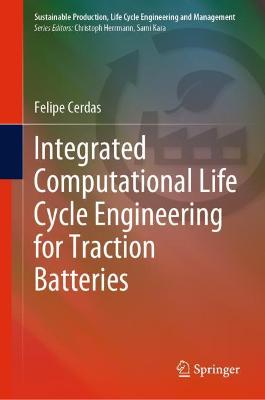The environmental burden caused by private transportation represents a significant challenge towards sustainability. Electric vehicles are considered a key technology to reduce the environmental impact caused by the mobility sector. However, the global adoption of electromobility implies shift and diversification of the environmental impacts caused by the transportation sector mainly driven by the production of the battery system. Modeling the life cycle environmental impacts of traction batteries is a time demanding and interdisciplinary task as it involves a high variability and requires an in-depth knowledge of the product system under analysis. To face these challenges, an Integrated Computational Life Cycle Engineering ICLCE framework for EVs has been developed. The ICLCE framework described aims at supporting fast and comprehensive modelling of complex foreground systems in the electromobility field and their interaction with diverse backgrounds and partial contexts.
- ISBN13 9783030829339
- Publish Date 31 August 2021
- Publish Status Active
- Publish Country CH
- Imprint Springer Nature Switzerland AG
- Edition 1st ed. 2022
- Format Hardcover
- Pages 192
- Language English
